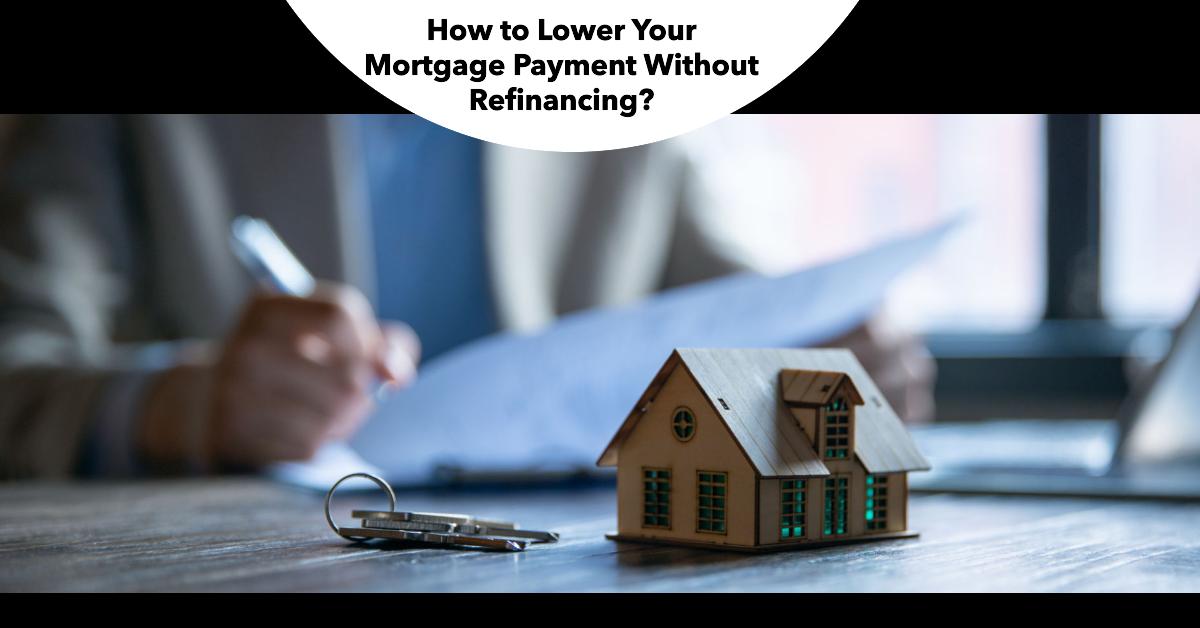You might be able to lower your monthly mortgage payment without refinancing if you qualify for certain programs or if you can negotiate a lower interest rate with your lender. While refinancing can be a great way to reduce your monthly payment or lower your interest rate, it also involves closing costs which can sometimes be high.
Table of Contents
How to Lower Your Mortgage Payment Without Refinancing?
If you're on a tight budget, you might want to consider these other options for lowering your mortgage payment:
Negotiate a Lower Interest Rate
If you have a good credit score and have been making your mortgage payments on time, you may be able to negotiate a lower interest rate with your lender. This can reduce your monthly payment significantly.
Example: If you have a $200,000 mortgage with an interest rate of 4%, your monthly payment would be $955. If you're able to negotiate a lower interest rate of 3%, your monthly payment would be $866. That's a savings of $89 per month.
To negotiate a lower interest rate, you'll need to contact your lender and explain your situation. You'll need to provide documentation of your income and assets, as well as your credit score.
If your lender is willing to negotiate, they may offer you a lower interest rate in exchange for a higher monthly payment. However, you can always try to negotiate a lower monthly payment as well.
Ask for a Mortgage Modification
A mortgage modification is a permanent change to the terms of your mortgage loan. If you're struggling to make your mortgage payments, you may be able to get a mortgage modification that lowers your monthly payment.
Example: If you have a $200,000 mortgage with an interest rate of 4%, your monthly payment would be $955. If you're able to get a mortgage modification that lowers your interest rate to 3% and extends the term of your loan to 30 years, your monthly payment would be $833. That's a savings of $122 per month.
To qualify for a mortgage modification, you'll need to show that you're experiencing financial hardship. This could be due to a job loss, a medical emergency, or a divorce.
If you're approved for a mortgage modification, your lender may lower your interest rate, extend the term of your loan, or reduce your monthly payment.
Apply for a HAMP Loan
The Home Affordable Modification Program (HAMP) is a government program that helps homeowners who are struggling to make their mortgage payments. HAMP can lower your monthly payment by up to 31%.
Example: If you have a $200,000 mortgage with an interest rate of 4%, your monthly payment would be $955. If you're approved for HAMP, your monthly payment could be reduced to $660. That's a savings of $295 per month.
To qualify for HAMP, you must meet certain income and debt requirements. You must also be able to show that you're experiencing financial hardship.
If you're approved for HAMP, your lender will modify your loan to lower your monthly payment. The modification will be for a period of up to five years.
Other Options to Lower Your Mortgage Payment
In addition to the options listed above, you may be able to lower your mortgage payment by:
- Biweekly Payments: Let's say your monthly mortgage payment is $1,200. With biweekly payments, you would split that amount in half and pay $600 every two weeks. This translates to 26 biweekly payments in a year. Since there are 12 months in a year, you essentially make an extra month's worth of payment (1,200 x 1 = $1,200) which goes directly towards your principal. Over time, this can significantly reduce the interest you pay and shorten your loan term.
- Paying Extra on Principal: Imagine you make the same $1,200 monthly mortgage payment, but you decide to put an additional $200 towards the principal each month. This brings your total monthly payment to $1,400. The extra $200 goes directly towards paying down your loan balance, reducing the amount of outstanding principal that accrues interest. This can save you thousands of dollars in interest over the life of your loan.
- Getting a Roommate: If you have a spare bedroom that you don't necessarily need, consider renting it out to a roommate. Depending on your location and the size of the room, you could potentially charge $500-$700 per month in rent. This income can help you offset a significant portion of your mortgage payment, making it more manageable.
- Challenging Your Property Taxes: If you recently purchased your home or believe your property value has decreased, you might find your property taxes are higher than they should be. By researching recent home sales in your neighborhood and gathering evidence of comparable property values, you can file an appeal with your local tax assessor's office. If successful, a lower property tax assessment would translate to a lower monthly mortgage payment (since property taxes are often factored into your escrow payment).
Remember, these are just examples, and the specific benefits will vary depending on your individual circumstances. It's always wise to consult with a financial advisor or mortgage professional to determine the best approach for lowering your mortgage payment.
To sum up, if you're struggling to make your mortgage payments, there are a number of options available to help you lower your monthly payment. Be sure to talk to your lender to see if you qualify for any of these programs.


